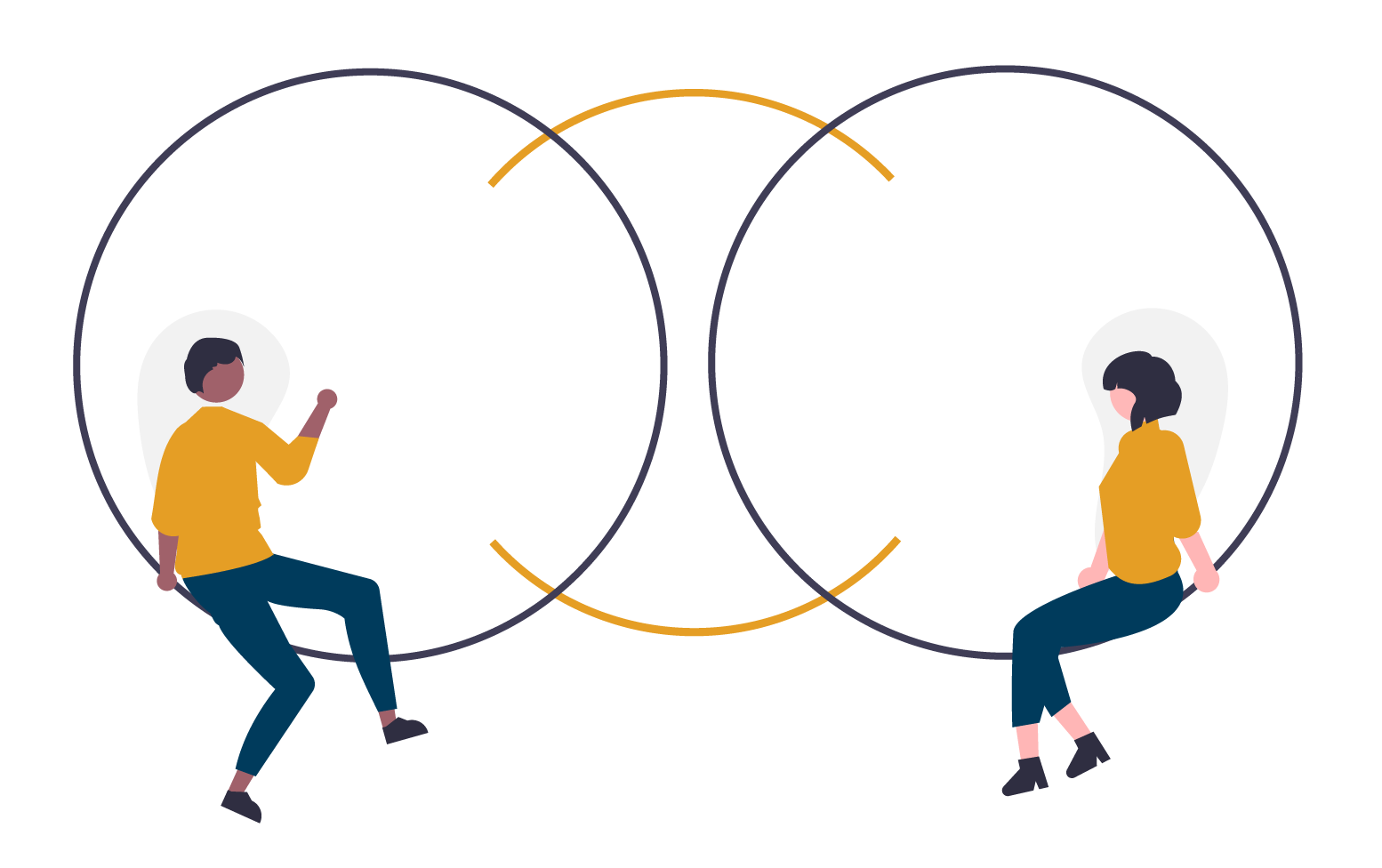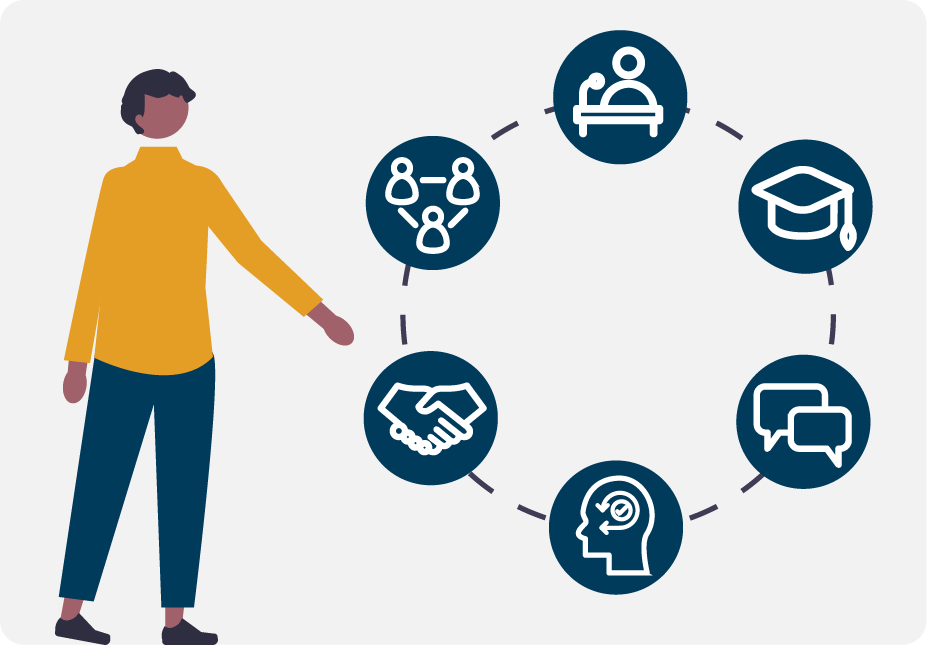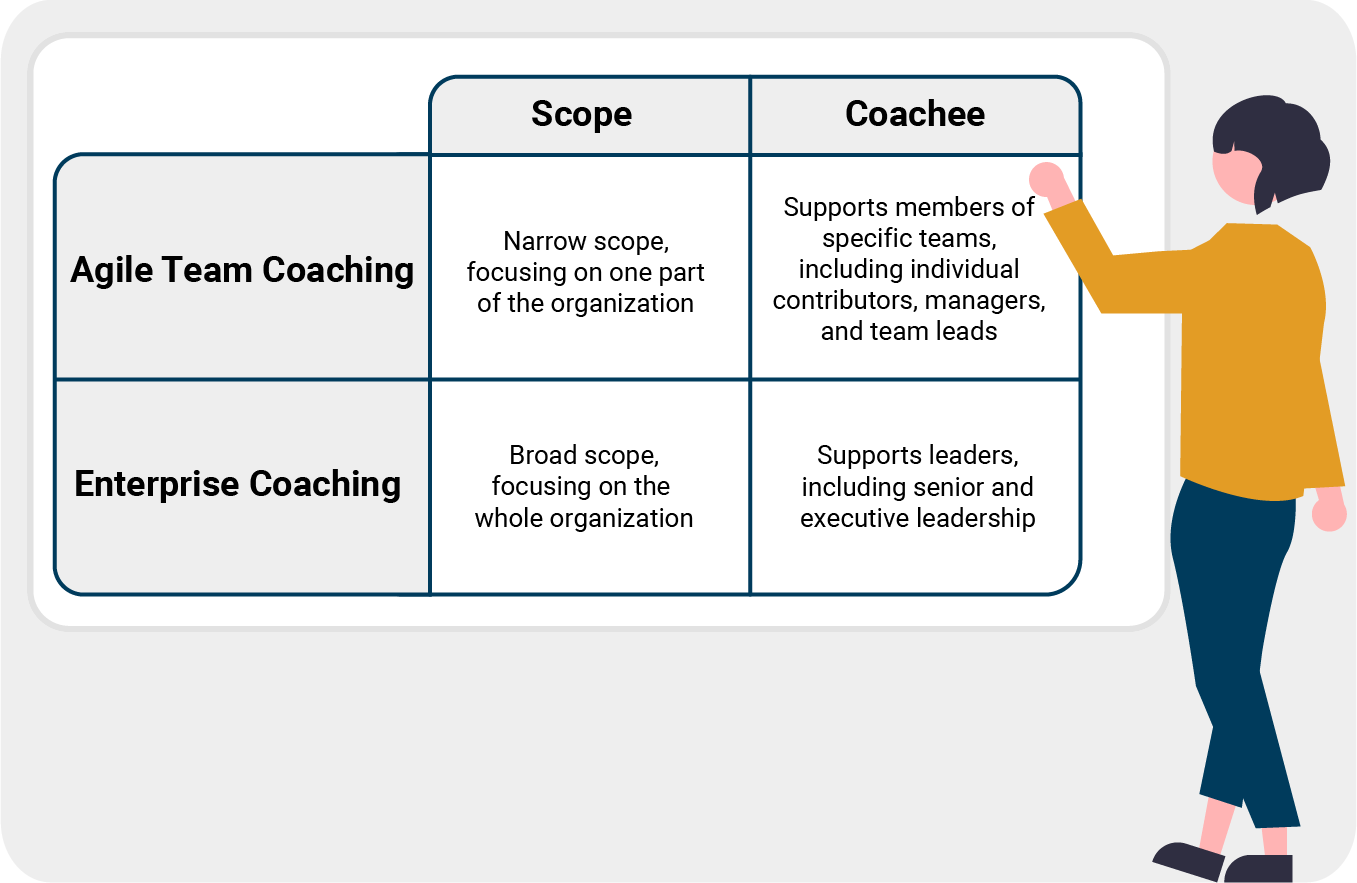Thinking about the next step on your agile journey? Becoming an agile coach or bringing agile coaching to your organization is a powerful way to strengthen an agile transformation.
With so many coaching certification programs available, it can be hard to know which program is right for you. A common question we hear is, “Should I start with agile team coaching or enterprise agile coaching?"
The short answer: it depends.
Here’s an overview of both types of coaching and a short guide to help you decide which is right for you or your organization.





